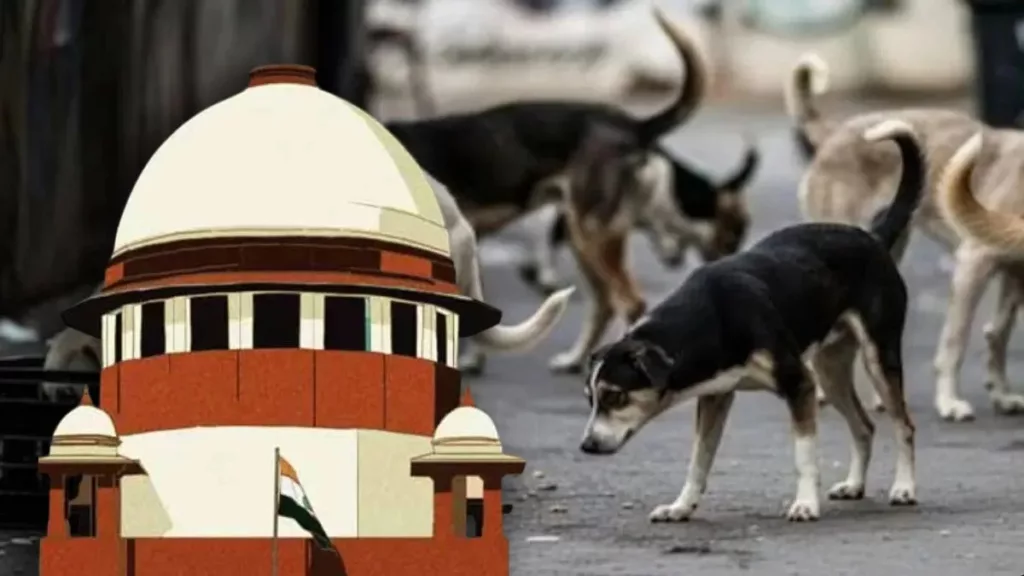In a landmark decision, the Supreme Court of India has modified its earlier directive on stray dog management, allowing the release of vaccinated and sterilized dogs back into their original localities, while imposing a nationwide ban on public feeding in streets and open areas.
The ruling, delivered by a three-judge bench comprising Justices Vikram Nath, Sandeep Mehta, and NV Anjaria, aims to balance animal welfare with public safety, following widespread debate and protests over the previous August 11 order that mandated permanent sheltering of stray dogs.
Key Directives from the Supreme Court
- Release Allowed: Stray dogs picked up by municipal authorities must be vaccinated, dewormed, and sterilized before being released back into the same area.
- Exceptions: Dogs exhibiting aggressive behavior or infected with rabies will not be released and must be kept in shelters.
- Feeding Ban: Public feeding of stray dogs is strictly prohibited. Violators may face legal action.
- Designated Feeding Zones: Civic bodies are instructed to create dedicated feeding areas in each municipal ward, marked with signage.
- Pan-India Scope: The Court has expanded the case beyond Delhi-NCR, impleading all States and Union Territories to formulate a national policy.
- Centralization of Cases: All related petitions pending in High Courts will be transferred to the Supreme Court for unified adjudication.
Background and Public Response
The original August 11 order had triggered backlash from animal welfare groups, which argued that mass confinement violated ethical standards and existing Animal Birth Control (ABC) Rules. The Court had cited alarming statistics, including 37 lakh dog bite cases and 305 rabies-related deaths in 2024 alone.
Following protests and legal submissions from NGOs and senior advocates, the Court reconsidered its stance, leading to the current balanced directive.







